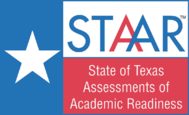
“Failing STAAR: Tests a struggle” – Austin American Statesman July 6, 2013
“STAAR Results: Students still struggle on writing tests” – Austin American Statesman June 11, 2013
The headlines keep coming, but the story remains the same. Across the state of Texas, almost half the students are not passing the writing test in the latest round of standardized exams. Only 54 percent of students passed the English 1 test geared toward high school freshmen this past spring. To say it differently, 152,000 students failed it. It’s the test “that students struggle with the most” according to the Statesman. In fact, only 14 percent of those retaking the writing portion passed – and some of them were taking it for the fourth time!
The state legislature cut the number of required tests for graduation from 15 to 5 in the latest session and I am going to sidestep the whole issue of whether we are testing enough or too much. The issue here is whether our students can write and the evidence is not optimistic. “However, statewide, the biggest challenge seems to be in writing, and English I and English II are still graduation requirements,” said Bill Caritj, chief performance officer at Austin Independent School District in the July 6 story.
This makes our heads explode at Cicero’s Academy™.
You know the popular criticism of the education system? That they only teach what’s on the test? Apparently, writing is the proverbial exception that proves the rule. The June 11 newspaper story quotes interested parties, consultants and other experts who claim that writing is tested but never taught in anything other than “drive-by writing instruction,” according to the head of the Texas Council of Teachers of English Language Arts.
In fairness, these results on writing proficiency are not unique to the great state of Texas. Florida caused an uproar last year when it raised the writing standard for grammar and syntax on its mandated test. Similar stories have played out elsewhere. The 2011 nation’s report card on writing showed that 54 percent of 12th grade students have only a partial mastery of what’s expected of them at that grade level. We see the results of this situation in the college classroom. At Cicero’s Academy, we have trained middle schoolers to write better than some college undergraduates. John sees these students in his college classroom and there is only so much that can be done in a semester at that level. The problem, though, includes graduate students who simply cannot pass their classes without writing coherent arguments that do more than just regurgitate the material covered in class. Writing and critical thinking go hand in hand.
This is not news to the future employers of our young people. The 2004 National Writing Assessment found that American businesses in just the finance and real estate industries were spending more than $3 billion a year on remedial writing instruction. They are not spending that money because they worry that the semi-colon is under-appreciated. It is money that – while not wasted – is going to build skills in the workforce that should come with a diploma. They are taking money that could go toward hiring more people or innovating new products and services to correct a problem that should not exist.
The flip side of this is worth considering, too. If half the workforce is composed of poor communicators, the other half stands out. Good communication skills are considered signs that employees should be considered for advancement. Hot young fast trackers are expected to present to executive staff and argue the value of their ideas or they will no longer be on the fast track.
Our high-tech, connected world is not obsoleting good communication skills. Google is the very definition of a 21st century company that is all about digital technology. Its name is a mathematical construct for goodness sake! It once ran an engineering recruitment campaign in Silicon Valley that involved billboards with nothing more than a mathematical equation on them. If you knew the answer to the equation, you found them and they knew they wanted you. So, what makes someone successful at Google? The company launched a human resources project called “Oxygen” to find out.
If you guessed math and science or technical engineering skills, you might be surprised. The answer was…communication skills as they applied in different ways. Technical field-related knowledge ranked dead last. Building on that project, Google now has a large database of information they use to evaluate people including how they communicate in everyday e-mail and verbal interactions.
This is why Cicero’s Academy exists. STEM education will take care of itself. But, we are failing the future when it comes to teaching our students how to communicate, argue their positions and motivate others to action. What’s worse, we are deluding ourselves that it is somehow less important than other hard skills or that effective communication is all a matter of opinion.
By no means do we claim that teaching kids to write well or speak well is easy. It requires love, patience, a sense of fun and wonder about the power of words along with a systematic approach that can teach a repeatable skill. It requires that the student be engaged enough to keep writing and that the teacher can give feedback that is specific, encouraging and practical.
So, we hope to see you in the coming weeks at our intermediate writing, public speaking and SAT workshops. We will work with you on tutoring schedules if those times do not meet your needs. We will give you a quick evaluation of your student’s work through the Essay Doctor service if that’s all you need.
We will keep plugging away. It’s the only way to keep our heads from exploding.
 Just back from an evening walk in the neighborhood. It’s a great night. Sunny. Slightly breezy. By Texas standards, reasonably cool. People are riding bikes, walking dogs, throwing Frisbees and playing soccer.
Just back from an evening walk in the neighborhood. It’s a great night. Sunny. Slightly breezy. By Texas standards, reasonably cool. People are riding bikes, walking dogs, throwing Frisbees and playing soccer.
